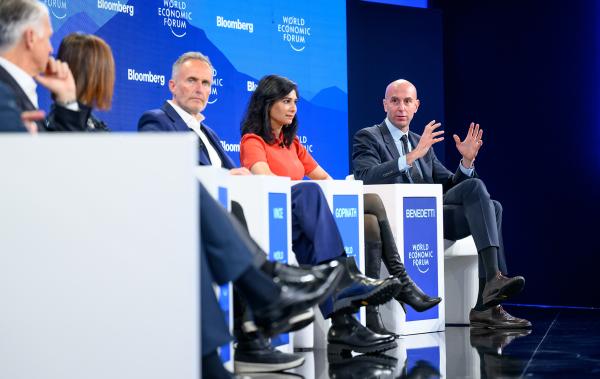Private debt: financing growth in a downturn
Market watch
Private debt: financing growth in a downturn
-
20 December 2021
-
Credit
-
Private Credit
Reading time: 8 minutes
The last year has been a challenging one for private debt managers after a decade of almost uninterrupted growth.
Fundraising has cooled, with investors pausing to reassess their private debt positions for the first time since the 2008 global financial crisis. According to Pitchbook figures, global private debt fundraising fell 16.4% to US$120.2 billion during the first quarter of 2021, on a trailing four-quarter basis. Fund numbers over the period slid 40.1% to 130 vehicles. This followed a 27.8% drop in private debt fundraising in 2020, where the US$109.7 billion of capital raised represented the lowest annual fundraising figure since 2015.
-
16.4%
drop in global private debt fundraising during the first quarter of 2021
-
40.1%
slid of the Fund numbers over the period
-
27.8%
drop in private debt fundraising in 2020
Displaying resilience
But although private debt managers have encountered fundraising headwinds over the last 12 months, the asset class has weathered the Covid-19 dislocation period well and proved its ability to continue operating through a downturn.
Portfolios have proven resilient. Defaults in the private debt space have been limited and according to Pitchbook private debt distributions for 2020 are expected to surpass the US$90.3 billion figure recorded in 2019, the second highest year for distributions on record .
Sustained distributions to investors indicate that private debt portfolio companies have continued to make debt repayments through the pandemic with minimal disruption, reflecting the capabilities of managers to support and shepherd portfolio companies through an entire credit cycle.
“Our portfolio has been resilient through the crisis. We strengthened our monitoring and undertook detailed financial and covenant analysis to ensure we were doing everything we could to support the portfolio,” says Guillaume Chinardet, Private Debt Investment Committee Chairman & Senior Managing Director. “Our conservative approach meant we had no restructuring situations. Our strategy has always focused on resilient business models, rather than specific sectors. We have always focused on financing companies that are less cyclical with predictable revenues, so our portfolio consists of cash-generative businesses with good visibility on earnings.”
Private debt managers have also seen a strong rebound in new deal activity after the market was effectively shuttered following the first round of lockdowns. According to Deloitte’s Alternative Lender Tracker, European alternative lenders secured 155 deals in Q4 2020, double the figure recorded in Q3 2020 and the second highest quarterly deal count on record since Q4 2012.
“New deal markets have been very active. Deals that were put on hold in Q2 2020 have come back to market, as have new transactions. The team has been very busy with new opportunities since September last year,” Chinardet says
Points of difference
There has of course been some bifurcation in the market. Pre-Covid the private debt space was characterised by rising numbers of new entrants and swelling levels of dry powder, which led to more aggressive deal structures as some managers competed on terms and pricing to win transactions.
Managers with credits that were aggressively structured, however, have been stretched through the pandemic period, which has given investors a data point against which they can differentiate managers across a cycle.
Mark Brenke, Ardian Managing Director and Head of Ardian Private Debt, says firms that took a prudent approach to fund size, and remained disciplined and highly selective on deals in the hot pre-pandemic market, have stood out from the crowd during the last year.
“Ardian’s Private Debt team is highly selective and focused on generating sustainable returns through the cycle,” Brenke says.
We have always matched our fund size to the underlying market opportunity, so we have never been under undue pressure to deploy. If a platform is too big for the opportunity set, you run the risk of overextending yourself. Resisting the temptation to double our fund size has meant we have retained selectivity while continuing to deploy in line with expectations. Sacrificing selectivity to accelerate deployment leads to problems when markets dip.
Managers that have been disciplined have had fewer portfolio issues to deal with, and better-positioned to fund growth and provide liquidity for portfolio companies across all phases of the credit cycle.
Financing beyond buyouts
The capacity of private debt managers to continue supporting portfolio companies through the volatility of the last 12 months and cover their liquidity and growth funding needs has provided further validation of the asset class’s long-term viability.
The ability to execute M&A financings has been a key focus area for private debt managers and according to Deloitte 71% of direct lending deals over the last year have funded buyouts. Through the pandemic, however, direct lenders have also shown that they can support borrowers with dividend recaps, refinancing and growth capital deals when required. As data from PitchBook reveals, private lenders deployed US$95.2 billion in refinancing and rescue capital deals during the first half of 2020, exceeding the full-year totals for most of the last decade4.
Indeed, having the capability to follow money and fund portfolio growth has become an important differentiator for managers. The ability to offer this support has been predicted by the health of a manager’s portfolio and exposure to credits in industries that have continued on growth trajectories.
“If you have followed a strategy of backing businesses with subscription fee models, sticky revenues and high visibility on future earnings, you will have had the opportunity to provide additional funding lines to support growth,” Brenke says.
There have been sectors that have continued to grow during the pandemic, and we have seen demand for growth financing among the companies we have backed expand by between 40% and 50%.
Chinardet says that by working closely with companies to understand how business models have adapted through the Covid-19 period, Ardian has been able to provide additional credit lines to its portfolio.
In sub-sectors where trading has been strong over the last 12 months there has been demand for growth and build-up financing on top of acquisition financing. Borrowers in a good financial position have drawn down on committed lines and looked for surplus capital to fund growth ambitions.
“Private debt managers who take the time to understand business models and work with borrowers as financing partners to grow their businesses have stood out.”
Good terms
Lenders that haven’t had to direct all their resources to restructuring and liability management, and have been able to continue funding new deals and advancing additional incremental facilities to portfolios, have noted opportunities to fund transactions on attractive terms.
“There has been a clear bifurcation in the market between sectors that have been Covid-resilient and able to secure terms similar to those available pre-pandemic, and other sectors, like leisure and hospitality, which have had to accept tighter terms to get funded,” Brenke says. “Overall, there has been a tightening up of terms. Good credits will still receive good terms, but mid-market deals will be covenanted, leverage has not increased and certain flexibility around debt incurrence baskets and Ebitda add-backs will only be offered if it is really justified and necessary,” Brenke says. “There is much more focus on risk management across the lender universe.”
Managers who have resisted the temptation to scale too quickly through the pre-Covid bull market and avoided compromising selectively in order to accelerate deployment and scale, are now ideally placed to take advantage of more favourable terms for new deals and opportunities to fund existing portfolio company ambitions.
After a challenging year, private debt lenders with durable portfolios and focused investment strategies find themselves well-positioned to fund deals on more lender-friendly terms in a less competitive market.
Read more insights on our Private Debt activity:
Why investment in scale is paying off for private debt post-Covid-19?





